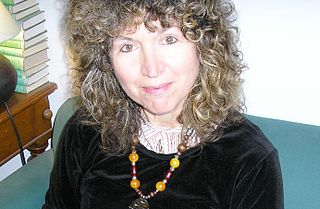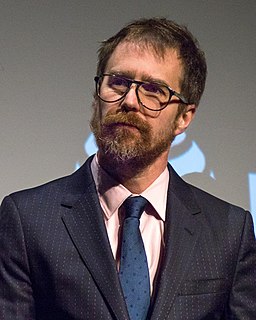A Quote by Jane Espenson
Related Quotes
I feel like, if I'm being honest with myself, my biggest skill set is as a writer 'cause I can do that quickly and I'm really grounded in story structure. Part of my success as an actor, is that I know story well. Part of my success as a director, is how well I know story. Same thing, as a producer. It all begins and ends with me as a story creator. But, I love doing it all.
There is a kind of structure for a story that was peculiarly compelling for the radio. I thought I had invented it atom-by-atom sitting in an editing booth in Washington on M Street when I was in my 20s. Then I found out that it is one of the oldest forms of telling a story - it was the structure of a sermon.
My great strength as an editor, I believe, is structure: I know how to reorder a piece, I know how to reach into a jumbled story and extract the important narrative. And I can do both of these things very fast. I also think I've become better at cutting text. You don't always relish it, of course, but by now I know how to distill something without sacrificing its essence.
The story is told of Lord Kelvin, a famous Scotch physicist of the last century, that after he had given a lecture on atoms and molecules, one of his students came to him with the question, "Professor, what is your idea of the structure of the atom." "What," said Kelvin, "The structure of the atom? Why, don't you know, the very word 'atom' means the thing that can't be cut. How then can it have a structure?" "That," remarked the facetious young man, "shows the disadvantage of knowing Greek."
The Universe story is the quintessence of reality. We perceive the story. We put it in our language, the birds put it in theirs, and the trees put it in theirs. We can read the story of the Universe in the trees. Everything tells the story of the Universe. The winds tell the story, literally, not just imaginatively. The story has its imprint everywhere, and that is why it is so important to know the story. If you do not know the story, in a sense you do not know yourself; you do not know anything.
If you're gonna tell a story from beginning to end, I always think you have to have a great structure in a script. If it gets you excited and it's something you've never read before that's another plus. I think also with improv and that whole world of stand-up, that's a whole other organism of comedy that still needs a story, but it's more free-form. On the set, it is the combination of both those worlds coming together: a great script and an allowance to play with it.
I've been making films with almost no dialogue (laughs), so sound and music become a very powerful character to tell the story. It's almost like with sound and music and images, it's your tool to tell the story, especially when I decide to structure the film in a way that usually goes against the conventions of the three-act structure which most films are made out of.
He did not know that the new life would not be given him for nothing, that he would have to pay dearly for it, that it would cost him great striving, great suffering. But that is the beginning of a new story -- the story of the gradual renewal of a man, the story of his gradual regeneration, of his passing from one world into another, of his initiation into a new unknown life. That might be the subject of a new story, but our present story is ended.
I didn't use anybody's story. I used the context and the structure of the situation. People were so, so desperate to tell their story and begin to digest their experience - like turning it into a story - that after the fist few weeks I could go with a pad and pencil and take notes. People didn't seem at all bothered by that.






































